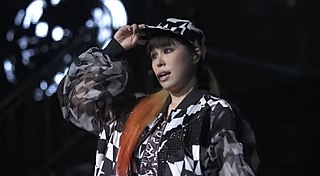
Ai Carina Uemura, known mononymously as Ai, is a Japanese-American singer-songwriter, rapper, record producer, spokeswoman, and actress.

Radwimps is a Japanese rock band who debuted independently in 2003 and later on Toshiba EMI in 2005. The band's name, Radwimps, was formed from two English slang terms, "rad" and "wimp". According to the band, the coined word had several meanings, including "excellent weakling" and "superlative coward".
Superfly is a Japanese rock act that debuted on April 4, 2007. Formerly a duo, the act now consists solely of lyricist and vocalist Shiho Ochi with former guitarist Kōichi Tabo still credited as the group's composer and part-time lyricist. Superfly's first two studio albums were certified double platinum by the Recording Industry Association of Japan, and their first four consecutive albums all debuted at the top of the Oricon Weekly Album Charts, a first for a female recording artist in Japan in over seven years.
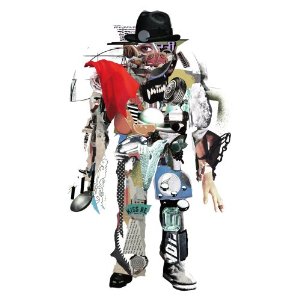
Altocolony no Teiri is Japanese rock band Radwimps' fifth album, released on March 11, 2009. It was preceded by the single "Order Made" in 2008, which became the band's first number one single. The album was a critical and commercial success, with critics noting the successful experimental growth in the band's sound. The album was certified platinum by the Recording Industry Association of Japan, and as of 2011 is tied for their most commercially successful work with the band's previous album, Radwimps 4: Okazu no Gohan.

"Order Made" is a song by Japanese rock band Radwimps, released on January 23, 2008, as the leading single a year before the band's sixth album, Altocolony no Teiri. The song was a commercial success, debuting at number one on Oricon's single charts, and at the time, becoming the band's most commercially successful song. The music video received several accolades from the MTV Video Music Awards and Space Shower Music Video Awards, including the best rock video award from each event.

Zettai Zetsumei is Japanese rock band Radwimps' sixth album, released on March 9, 2011.

"Yūshinron" is a song by Japanese rock band Radwimps, released on July 26, 2006, as the second of three singles from the band's fourth album, Radwimps 4: Okazu no Gohan.

"Futarigoto" is a song by Japanese rock band Radwimps, released on May 17, 2006, as the first of three singles from the band's fourth album, Radwimps 4: Okazu no Gohan.

"Dada" is a Japanese-language song by Japanese rock band Radwimps, released on January 12, 2011 as the first of two singles leading up to the band's sixth album, Zettai Zetsumei.
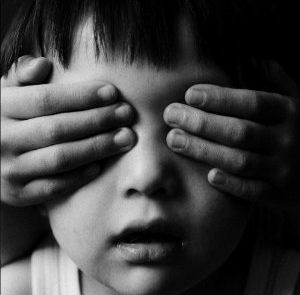
"Kyōshinshō" is a song by Japanese rock band Radwimps, released on February 9, 2011 as the second of two singles preceding the band's sixth album, Zettai Zetsumei.

RADWIMPS 2: Hatten Tojō, stylised as RADWIMPS 2 ~Hatten Tojō~, is Japanese rock band RADWIMPS' second album under independent label Newtraxx, released on March 8, 2005.
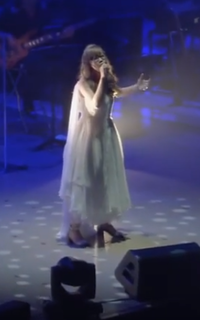
Aimer is a Japanese pop singer and lyricist signed to SACRA MUSIC and managed by agehasprings. Her name comes from the verb "Aimer" in French, which means "to love". Aimer uses the name aimerrhythm for lyrics credits.

Yojiro Noda, is a Japanese singer, songwriter, musician, record producer and actor. Noda is the lead vocalist, songwriter and guitarist of the Japanese rock band Radwimps and also began a solo project, Illion, in 2012.
Misoshiru's is a Japanese punk rock band. A fictional stage persona for the band Radwimps that was created in 2005, the project was first unveiled in 2006 when Misoshiru's were the billed artist for the band's song "Jennifer Yamada-san". In 2013, Misoshiru's was revived, and released their debut album Me So She Loose through Universal Music Japan.

"Eureka" is a song by Japanese band Sakanaction. It was released as a single in January 2014, as a double A-side single with the song "Good-Bye". The minimal techno and city pop song served as the ending credits theme song of the film Judge! (2014), while their 2010 single "Identity" was used as the film's theme song. The song was composed while the band's vocalist and songwriter Ichiro Yamaguchi was physically and mentally unwell. He used his feelings of homesickness during this time to write lyrics that compared his current residence, Tokyo, to his hometown of Otaru, Hokkaido.
Suchmos is a Japanese rock group formed in 2013. Suchmos was inspired by African-American music such as rock, jazz, and hip-hop. The band's name, Suchmos, is adapted from a jazz musician Louis Armstrong’s nickname, “Satchmo”.
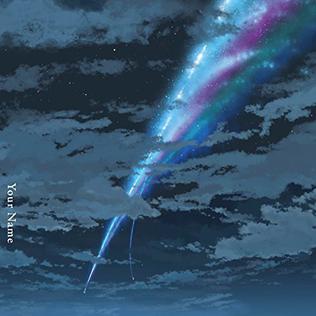
Your Name. is the eighth studio album by Japanese rock band Radwimps and the soundtrack for the 2016 Japanese animated film Your Name, released on August 24, 2016, by EMI Records and Universal Music Japan. It debuted at #1 on Oricon's weekly album rankings on September 5, 2016, with 58,000 copies sold. It received an album certification of Double Platinum from the Recording Industry Association of Japan for sales of 500,000 in 2017. The album also charted on US Billboard. It peaked at #16 on Billboard Heatseekers Albums, #15 on Billboard Soundtracks Albums, and #2 on Billboard World Albums chart. The vocal tracks were re-recorded in English and became available digitally on January 27, 2017, with a CD release on March 10, 2017.
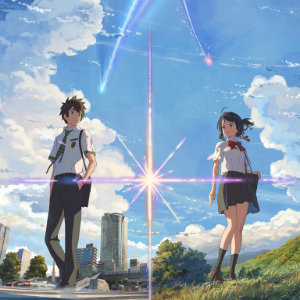
"Zenzenzense" is a song by Japanese rock band Radwimps. It was used as one of the four theme songs to the animated film Your Name, and was one of 26 songs the band composed for the film's soundtrack. It reached number-one on the Billboard Japan Hot 100. It also received a digital download song certification of Million from the Recording Industry Association of Japan for sales of 1,000,000.

Million Yen Women is a Japanese manga series written and illustrated by Shunju Aono. It was serialized in Shogakukan's seinen manga magazine Big Comic Spirits from November 2015 to September 2016. The series was adapted into a live-action TV drama in 2017 by Netflix and TV Tokyo co-production starring Yojiro Noda, lead vocalist of RADWIMPS.
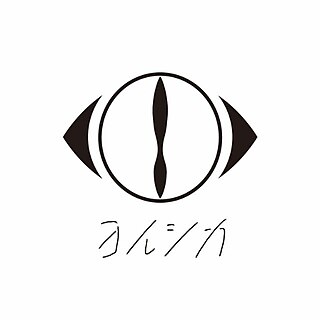
Yorushika (ヨルシカ) is a Japanese rock duo founded in 2017 represented by Universal Music Japan. The group is composed of N-buna, a vocaloid music producer, and Suis, a female vocalist. They are known for their juxtaposition of "passionate" and "upbeat" production and instrumentation fused with heavier lyrical content, which often explore ideas such as love and human emotion and draw from works of literature including Masuji Ibuse and Jules Verne. The name "Yorushika" is taken from a lyric in their song "Kumo to Yūrei" (雲と幽霊): "Yoru shika mō nemurezu ni". The eye-designed logo mark is a motif of two moons facing each other and also serves as a clock hand, portraying the time "from 6:00 to night".


















